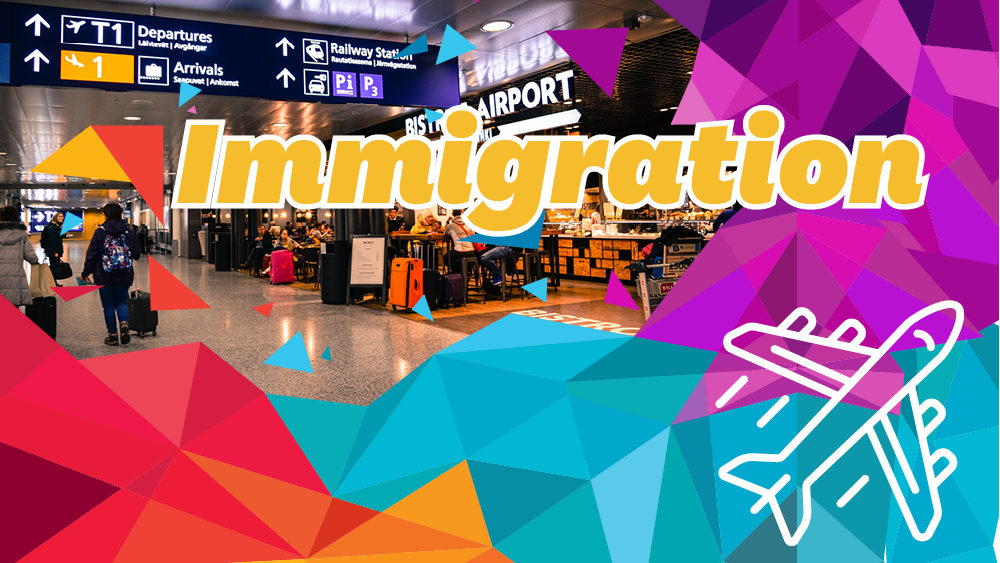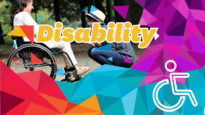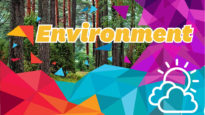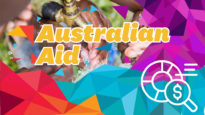Immigration
A battle of narratives
Key Issues
The electoral battle over issues to do with asylum seekers and offshore detention is going to be a battle of narratives.
A battle of narratives
On the one hand, conservative parties will emphasise a narrative linking asylum seeker policy with national security. This narrative insists it is necessary for Australia to take a harsh approach to asylum seekers – including offshore detention, refusing resettlement in Australia, etc – in order to deter people from seeking asylum in Australia and keep Australians safe.
In contrast, progressive parties argue Australia’s current approach to asylum seekers falls short of the international standards of human decency – particularly with regards to physical and mental healthcare. They say Australia’s harsh asylum seeker policies are politically motivated and stoked by fear and racism, and that Australia can both have a robust assessment process that upholds national security and treat people who seek asylum with dignity and respect.
Arrivals
For the past few elections maritime (boat) arrivals have dominated conversation about people seeking asylum in Australia, although people seeking asylum in Australia also arrive by air.
The Coalition Government insists that previous Labor Government’s lax asylum seeker policies led to a surge of people seeking asylum in Australia who travelled by boats in life-risking journeys conducted by people smugglers- and that they could do so again. This is what’s described as ‘push and pull factors’ – i.e. the idea that Australia’s policies either encourage or deter asylum seekers from seeking asylum via boat.
However, statistics have not proven the theory that Australia’s resettlement policies directly affect the numbers of asylum seekers who attempt to reach Australia by boat. In fact, statistics recording the maritime flow of displaced people show that Australia’s increased arrivals have always been reflective of what is happening elsewhere in the world (see here for more) and ignores the context of global displacement currently reaching its highest levels on record.
That is to say, “an unprecedented 68.5 million people around the world have been forced from home. Among them are nearly 25.4 million refugees, over half of whom are under the age of 18. There are also an estimated 10 million stateless people who have been denied a nationality and access to basic rights such as education, healthcare, employment and freedom of movement” and “nearly 1 person is forcibly displaced every two seconds as a result of conflict or persecution”. (More UNHCR figures like these are available here).
When the Coalition Government came to power in 2013, it adopted a policy of denying resettlement in Australia to any asylum seekers who arrived by boat. They also adopted a ‘turn back the boats’ policy – turning back or towing vessels carrying people seeking safety to their place of departure. Refugee advocates criticised the policy as targeting one type of arrivals for political reasons, with those asylum seekers who arrive by boat historically having been found more likely to be granted refugee status than asylum seekers who arrive by air.
The Coalition Government has claimed their policies have “stopped the boats” and “stopped the deaths at sea”. However, the government’s own statistics show that asylum seekers have actually continued to try to reach Australia by boat, albeit at greatly reduced numbers.
In fact, since the Coalition has come to power and “stopped the boats”, the numbers of people seeing asylum in Australia has swelled to record numbers – just with more asylum seekers now seeking asylum by plane. The Home Affairs Department website shows 27,931 protection visa applications were made in the latest financial year by plane arrivals – the previous record number of asylum seekers was 26,845 in the 2012-13 financial year when 18,365 protection visa applications were made for boat arrivals and 8480 for those who came by plane.
Offshore Detention
The conditions asylum seekers experience in Australia’s offshore immigration detention centres – particularly with regards to healthcare (or lack thereof) – was one of the major news stories of 2018.
Under Australia’s currently policies, asylum seekers who come to Australia via boat are detained offshore on Nauru and Manus Island whilst their applications are processed. From here, they can be returned home if their application is unsuccessful or resettled in a third country if granted refugee status.
For many years, refugee advocates have said that the application processing times of up to six years and the conditions asylum seekers face in offshore detention are a denial of their fundamental human rights and basic decency. This assessment has been echoed by the United Nations.
These concerns reached a boiling point in 2018 in the Kids Off Nauru campaign, which saw 170,034 Australians sign a petition to pressure the Government to get kids off Nauru. The campaign was successful, with all children being removed from Nauru in one way or another – an outcome the Morrison Government claimed was the success of their ongoing work, rather than a response to public pressure.
Medevac laws
On Tuesday 26 February, the Australian parliament passed the Home Affairs Legislation Amendment (Miscellaneous Measures) Bill 2018 – commonly known as the Medevac Bill. The Bill provides an independent process for sick refugees and asylum seekers in Australia’s offshore detention centres to receive medical care in Australia, when needed because it isn’t available on Manus Island or Nauru.
Previous to this, medical evacuations were allowed at the discretion of the Australian Government’s Home Affairs Minister with the only recourse to appeal a denial being a lengthy court process. Read more here.
A total of 12 people have died in Australia’s offshore detention centres to date. The inquiry into the case of Hamid Khazaei showed that he died as a direct result of the Australian Government’s refusal to follow medical orders. There have also been documented rises in ‘resignation syndrome’, self-harm and suicide attempts amongst asylum seekers in Australia’s detention centres, some concerning young children. In 2016, UNHCR found that 88 per cent of people on Manus Island were suffering from depression, anxiety and/or post-traumatic stress disorder.
The Medevac Bill was passed after a vicious political debate during which the Coalition Government expressed concerns the bill could lead to weakened borders and national security. Amendments to the bill gave the minister 72 hours to assess a transfer referral which, if he or she refused, would be sent to an independent medical panel. The panel could override a minister’s refusal on health grounds but the minister has the final veto if there are security issues surrounding the patient.
Immediately following the passing of the Medevac Bill, the Government re-opened the Christmas Island detention centre (that it had closed late in 2018) “both to deal with the prospect of arrivals as well as dealing with the prospect of transfers”. See more here and an update here.
Visas
Australia has a complex system of visas available to people seeking asylum.
These have been criticised by refugee advocates for being overly strict and complex, and for keeping people in a state of ‘limbo’ that doesn’t allow them to flourish and for there being no recourse for appeal.
Party Platforms
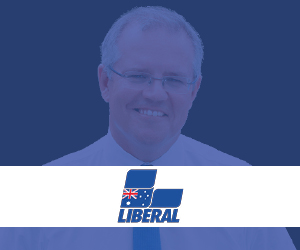
Arrivals and offshore detention: The Liberal Party has said that there will be no changes to their current approach to people seeking asylum. Boat turn-backs will continue, offshore detention will continue and “people subject to regional processing arrangements will not be resettled in Australia.”
Instead, refugees detained on Nauru will continue to be able to apply for resettlment in Cambodia and the United States, although only 439 people have been able to be resettled in the United States so far. Refugees in Papua New Guinea can apply to resettle in the United States or in PNG.
And “if asylum seekers, refugees and non-refugees on Nauru or in PNG decide to return home voluntarily, assistance is available to help, including booking and paying for travel.”
Their platform also states, “The Australian Government has provided over $1 billion dollars in support for health, welfare and infrastructure projects in PNG and Nauru.” (see Australian Aid for a discussion of this subject) and “where medically necessary, people have been brought to Australia for treatment.”
Visas: The only significant change proposed by the party is that it will attempt to increase the Foreign Minister’s power to cancel visas.
Since 2015, the Government has had the power to revoke the citizenship of any dual-national who engages in terrorism. In addition, this Government has increased the powers of the minister to cancel the visas of non-citizens, resulting in a 12-fold increase in visa cancellations for non-citizens convicted of a crime and sentenced to 12 months or more imprisonment, or who have been convicted of a sexual offence against a child.
If elected, the Liberal Party says it will propose legislation that gives the minister power to “be able to cancel visas of people convicted of a crime punishable by a maximum sentence of two or more years in prison, which involves violence, sexual assault, domestic abuse and the use or possession of weapons. This will capture people convicted of crimes that strike at the heart of the Australian community, regardless of whether they have been given a jail sentence.”
Humanitarian Intake: The Liberal Party says it has increased Australia’s humanitarian program (i.e. its resettlement intake of people who’ve been given refugee status) from 13,750 refugees in 2013-14 to 18,750 in 2018-19, with an additional intake of 12,000 refugees fleeing the conflict in Syria and Iraq. In 2016-17 around 20,200 offshore humanitarian visas were granted. “This represents Australia’s largest offshore intake in over 30 years,” the party says.
However, the budget also referred to the program number for 2017-2018 as a “ceiling” in performance targets for 2017-18 and relaxed the target for 2018-19 by requiring only that the Program is delivered “in accordance with priorities and informed by program parameters set by the Government”. This is consistent with the current government’s changes to performance targets across immigration, which generally remove numerical targets for broader and more qualitative assessments.
There have been reports of the current Government filling its humanitarian program quota with a lower number of the UNHCR’s recommendations (a system which treats applicants equally regardless of faith) and instead prioritising Christian refugees for resettlement in Australia. There is very little information about this available.

Arrivals and offshore detention: The Labor party’s platform on boat arrivals mirrors the Coalition’s: “the way to Australia through irregular means by boat is closed, and it will remain so under Labor.” For Labor, resettlement in Australia is also a no-go for asylum seekers who arrive by boat with the reason given that they don’t want to encourage the people-smuggling trade. Their policy states: “bringing people from offshore regional processing centres to Australia is not an option”
However, unlike the Coalition, Labor doesn’t support the use of Manus Island and Nauru as long-term solutions, insisting they were only established as temporary measures, saying “Much more needs to be done to resettle eligible refugees in other third countries.”
Labor’s position on resettlement states: “Labor has called on the Liberal Government to accept New Zealand’s offer to resettle eligible refugees from Manus and Nauru and negotiate conditions similar to the US refugee resettlement agreement to prevent people smugglers exploiting vulnerable people. If the Government was able to negotiate conditions for the US deal, they should be able to negotiate them for any deal with NZ. Labor has repeatedly called on the Liberal Government to release the details of the US refugee resettlement agreement.”
However the party claims “Labor’s resolve to prevent deaths at sea is matched by a commitment to a humane and compassionate approach to asylum seekers which enables refugees to progress their claims safely and securely.”
Humanitarian intake: Increasing Australia’s annual humanitarian intake of refugees to 27,000 by 2025 to address the global humanitarian crisis
In addition, Labor is committed to:
- Providing $450 million in funding over three years to support the important work of the UNHCR both globally and in South East Asia and the Pacific;
- Appointing an independent children’s advocate to represent the interests of children seeking asylum and legislating to impose mandatory reporting of child abuse;
- Reintroducing the ‘90 day rule’ into the Migration Act, in addition to references to the UN Refugees Convention;
- Reinstating access to the Refugee Review Tribunal and abolish the IAA established by the Abbott Government; and
- Abolishing Temporary Protection Visas (TPVs) which keep people in a permanent state of limbo and placing those found to be genuine refugees on permanent protection visas.
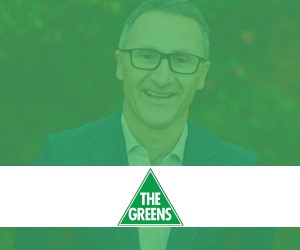
The Greens’ party platform is based on the belief that “Australia has humanitarian and legal obligations to accept refugees and reunite families” and “Australian society benefits from immigration.”
The party are advocating for:
- Australian to take responsibility for assessing all asylum claims of people who seek Australia’s protection within the migration zone.
- People seeking asylum to be fully informed of their rights on arrival and given immediate access to legal support and health care, assisted by interpreters, as required.
- The current system of humanitarian visas (granted only by ministerial discretion) to be replaced with an open, accountable humanitarian visa assessment.
- Assessment of applications for asylum completed in a timely and transparent manner.
- Refugees to be treated with dignity, including within the terminology that is used by Australian Government departments and agencies
- The elimination of mandatory and indefinite detention, and the abolition of offshore processing (where a person seeking asylum, refugee or special category visa holder is returned from Australian territory to another nation to be assessed) and other forms of punitive or discriminatory treatment.
- The development of networks, materials and programs that increase community understanding of the causes and benefits of migration.
- All people found to be refugees, but given negative security assessments, to be given the reasons for such assessment, access to legal representation and the opportunity to challenge this in the appropriate forum. They are only to be detained as individually required by court order, with periodic judicial review.
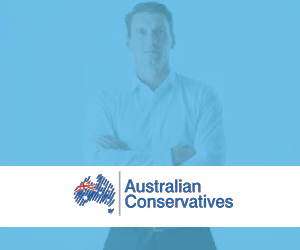
Arrivals of offshore detention: “Australian Conservatives support our world-leading offshore processing and illegal boat arrival turn-back policies. However, all determinations of visa applications will take place within Australia.”
Humanitarian intake: Australian Conservatives want to withdraw from the UN Refugee Convention “to allow Australia to determine its refugee intake free from external constraints.” They would immediately halve Australia’s current net immigration intake. It says that “immigration must provide a positive benefit to Australia’s economic, social and cultural interests … current immigration levels are too high, putting pressure on services, infrastructure and family incomes.”
For the Australian Conservatives party platform on immigration, click here.
Christian Commentary
A group of refugee Christians from western Sydney has written this letter:
To our brothers and sisters in Christ,
This is a letter from a group of Christians who have sought safety in Australia. We are refugees. We want to tell you that the next federal election will have a huge impact on our lives. This next one is of particular significance and we want to explain why. We are part of churches mostly in South West Sydney. We sing alongside you, we pray alongside you and attend Bible study with you. Yet even in our own churches there are not many people who properly understand our situation. This is understandable because refugee policy is complicated and has changed so often that
it is hard to keep up.
One idea that many of our Christian friends have is that both major political parties are just as bad as each other on refugee policy. We have friends on Manus Island and Nauru, and it devastates us that both major parties want to continue their offshore detention centre policies. However, there are also some significant differences between the policies of our major political parties. These differences could be life-changing for refugees in Australia. We want to tell you our stories to help highlight these differences. Under current policies we have been pushed and stretched to breaking point. We are swimmers in a vast ocean being hit by wave after wave of bad news. We are getting tired. We are about to give up. We need a change at the next election so that we can have a reprieve.
Before we tell our stories, we need to tell you a bit about our visas to help you understand.
Some of us have Safe Haven Enterprise Visas (SHEVs) or Temporary Protection Visas (TPVs). Both these visas mean that we have been processed, and found to be genuine refugees. Both are called temporary protection visas.
SHEV: A 5-year visa that requires the visa holder to agree to work or study in a ‘rural’ area of Australia and not access any welfare benefits. If conditions are met, the visa holder has a has a possibility of applying for a different visa.
TPV: A 3-year visa with no conditions. Once it expires the visa holder will only be allowed to apply for another temporary visa and will need to go through another refugee determination process.
What is the difference in policy?
The Liberal government introduced and supports temporary protection visas.
The Labor government has always opposed temporary protection visas in favour of permeant protection visas.
This particular election is significant to us because of this difference. The time between 2019-2022 is when most of our temporary visa will expire. When they expire we will need to apply for visas again. We could get sent home to danger. We could remain separated from our family for another 5 years. We are breaking as our health deteriorates. Let us explain through some stories
Yasmine’s story
Temporary visas can result in people being sent home to danger
My name is Yasmine*. I am a 35 year-old single woman who had to leave everything and everyone I love because of trauma I had back in my homeland. I tried to come to Australia with the hope that I could escape danger, but tragically our boat sank and over 160 people died, including my close friends and their families who I came with. I was one of a few survivors. I don’t know how to put into words what happened to me so that people could understand how much I hurt. I eventually made it to Australia. That was years ago, and I wish I could forget the terrible nightmare and move on with my new life, but my temporary protection visa makes this impossible. I work as a lifeguard and swimming instructor and my employer would like to sponsor me for a work visa but is unable to because of my TPV. When my visa expired last year, I thought I could apply for a new visa without having to relive past events, but unfortunately I had to talk about everything to the lawyers who helped me apply. I couldn’t even listen to the recording of my first interview – it is too horrible to think about. I hope I never have to do this again. I’m so thankful that I live in Australia, but because of my temporary visa, I still feel that I live between the sky and earth. Whatever you think about the way I came to Australia, please consider the huge difference a permanent protection visa would make to my safety, my future and my ability to contribute to my new country. Please pray for me.
Esther’s Story
Temporary visas prevent family reunion
My name is Esther*. I am a 38 year-old Iranian woman and I have been separated from my husband for 6 years. I don’t know when I’ll be able to live in the same country as him. We’ve been married for 12 years and I desire to be reunited with him. I can look after myself, but it is a strange existence being somewhere between single and married for 6 years and longer. I talk with him for hours everyday, but I sometimes can’t quite remember details about him. We have changed so much without being beside each other. Our time together, 6 years ago, sometimes feel more like a dream than reality. I’ve had to forget about the idea of having children. I was a journalist in Iran who criticised the government. I became a target and had to flee Iran in 2013. Many of my co-workers are now in prison or have been killed. My husband, Omid, was a human rights lawyer who also criticised the government. He could not leave Iran at the same time as me due to passport complications. I made it to Australia in 2013. My husband left Iran but did not make it to Australia. I was found to be a genuine refugee and given a SHEV visa in 2018 after waiting 5 years. My SHEV visa does not allow me to sponsor my husband to join me in Australia. Under the current system, there is only a very small chance that I will be able to bring my husband here in the next few years, and it will cost over $40,000. If I stay on a temporary visa my husband may never be able to come. A permanent visa will allow us to be together.
Sargon’s Story
Temporary Visas affect access to healthcare
My name is Sargon*. I am a 41 year-old stateless Faili Kurd. I was born in Iraq but when I was 3 years old I was expelled with my family to Iran by Saddam Hussein. I arrived in Australia in 2010 seeking asylum and was finally granted a SHEV visa in 2016 after being made to wait for 6 years. Even though I could never go to school when I was young, I have studied hard to learn English in Australia, but I don’t have the qualifications for
office work and cannot do physical work. I got Polio as a child and didn’t get the medicine or treatment I needed. I have difficulty walking and have chronic pain, made worse by post-polio syndrome. Since I am not a permanent resident of Australia, I am not eligible for a disability support pension or any help to pay for my mobility aids through state or federal government programs. I am treated the same as someone with a temporary condition and expected to apply for jobs which I can’t do. A permanent protection visa would change all this. It would also let me gain citizenship and finally belong somewhere.
These are just three of our stories. There are so many more stories to tell. We hope that you will do three things now that you have read this letter:
1. Please pray that God would look after us, our families and countries. He is our rock. He is our comfort.
2. Please consider our stories in the upcoming election. Not in every election in the future. Just this next one, so
there is compassion before our visas expire.
3. If you thought this letter had important information, please share it with a friend or with your church.
Sincerely,
Yasmine, Esther, Sargon and the many brothers and sisters in Australian churches who have sought asylum
* names have been changed and faces hidden to protect the identity of the refugees in this letter. They hold temporary visas and so face a real risk of being returned to their home country to face danger.
As people of faith we welcome recent moves to bring all children in detention off Nauru. We welcome the passing of the Medical Transfer Bill by our Australian Parliament of elected representatives. Both these measures are humane and in no way jeopardise our national security. But they do not go far enough.
As people of faith we reject any rhetoric that suggests Australia is facing a border protection crisis and that Australia needs to reopen Christmas Island as a detention facility.
As people of faith we call on people from all sides of politics, the media and society to avoid using language that seeks to demonise groups of people currently held in detention and other people wanting to come to Australia to seek a safe life.
As people of faith we call on politicians from all political parties to outline reasoned and humane policies that will end offshore detention. We want to ensure the dignity and well-being of all in our care, including those people seeking safe refuge who are in Australia and being left destitute in our communities and neighbourhoods by current policy.
We urge the kind of welcome that lifted everyone’s spirits this week, with the return of Hakeem from detention in Thailand, who we all are embracing as one of our own.
Let us be clear. We are helping sick people because they need our help. That is enough to do well, now.
“Our Churches and agencies around the nation, as ever, stand ready to help, in partnership with our Government.”
Bishop Philip Huggins of the Anglican Church of Australia, current President of National Council of Churches in Australia and a founding member of the Australian Churches’ Refugee Taskforce
Excerpt from A Welcoming, Compassionate and Diverse Nation from 2019 Federal Election Resource by Uniting Church Australia
What the UCA has said:
“We affirm our eagerness to uphold basic Christian values and principles, such as the importance of every human being, the need for integrity in public life, the proclamation of truth and justice, the rights for each citizen to participate in decision-making in the community, religious liberty and personal dignity, and a concern for the welfare of the whole human race.”
– Statement to the Nation (1977)
“We approach the issue of asylum seekers and refugees in the context of the words of Jesus. He spoke of a new community established on righteousness and love, and based on a fellowship of reconciliation — a community in which all members work together for the good of the whole. In essence, working for this kind of society is our contribution to civil society. When we work for freedom, human rights and the common good of the community we are expressing our faith. It is an outworking of the community of God.”
– Asylum seeker and refugee policy (2002)
“In Jesus Christ we discern that which is truly human. As we feed the hungry, welcome the stranger and care for the thirsty, the sick and the imprisoned, there is the mysterious possibility that we will discover the life of Christ among us (Matthew 25: 31-46), and share the love of God.”
– Dignity in Humanity (2006)
Principles for Good Policy for the Protection of Asylum Seekers and Refugees:
- All people should be treated with respect and accorded the dignity they deserve as human beings.
- As one of the wealthiest, safest and most secure countries in the world, Australia should do its fair share to ease people’s sufferings in the context of what is a global problem. We must not shift our responsibilities to poor and developing countries.
- Australia’s policies relating to asylum seekers should be driven by bipartisan commitments to a humanitarian response focussed on protection needs and to upholding our obligations under international law.
- The Australian Government must be transparent in the implementation of its policies, open to scrutiny by the courts and the media and to critique and advocacy from civil society.
- The media should not demonise or inflame prejudice against asylum seekers and refugees by deliberately promoting misunderstanding. The State of the Nation People seeking asylum are detained indefinitely in offshore detention
- Despite the release of children from detention, there remains a large number of refugees held in offshore facilities.
- There have been numerous cases of deteriorating mental and physical health, self-harm and suicide among adults and children detained on Manus Island and Nauru. From February to November 2015, 239 detainees were assessed as being at ‘high imminent’ risk of suicide or self-harm.
– Shelter from the Storm (2015)
Also included in this comprehensive guide are the UCA’s vision, hopes and an assessment of the ‘state of the nation’ relating to asylum seekers, along with biblical resources, key actions, discussion starters and suggested questions for political candidates.
ACL support Labor’s move to raise refugee intake by Martyn Iles | December 17, 2018
The Australian Christian Lobby today expressed in principle support for the Australian Labor Party’s commitment to raise the refugee intake by 4,000 places.
Managing director, Martyn Iles said, “Australia should be a generous nation when it comes to playing our part in the global crisis of displaced persons.”
“Even a generous intake will always be small compared to the size of the global refugee crisis, so it is vital that the refugee program should continue to favour the world’s most vulnerable and persecuted minorities.”
“The recent case of Asia Bibi, and others like her, show that Christians are still amongst the most persecuted minorities in the world.”
“Australia must keep rising to the challenge when it comes to generosity. That’s the kind of nation we should aspire to be.”
Share this guide
